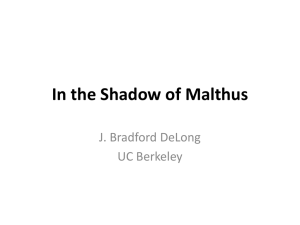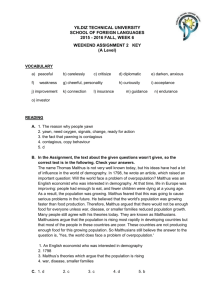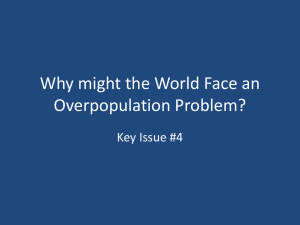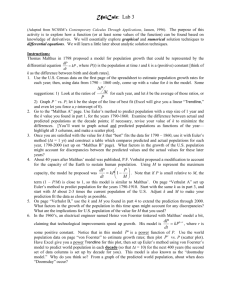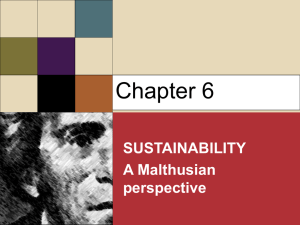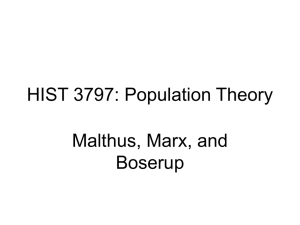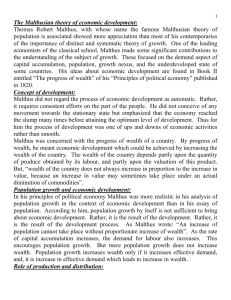Exponential Growth Worksheet: Math & Biology
advertisement
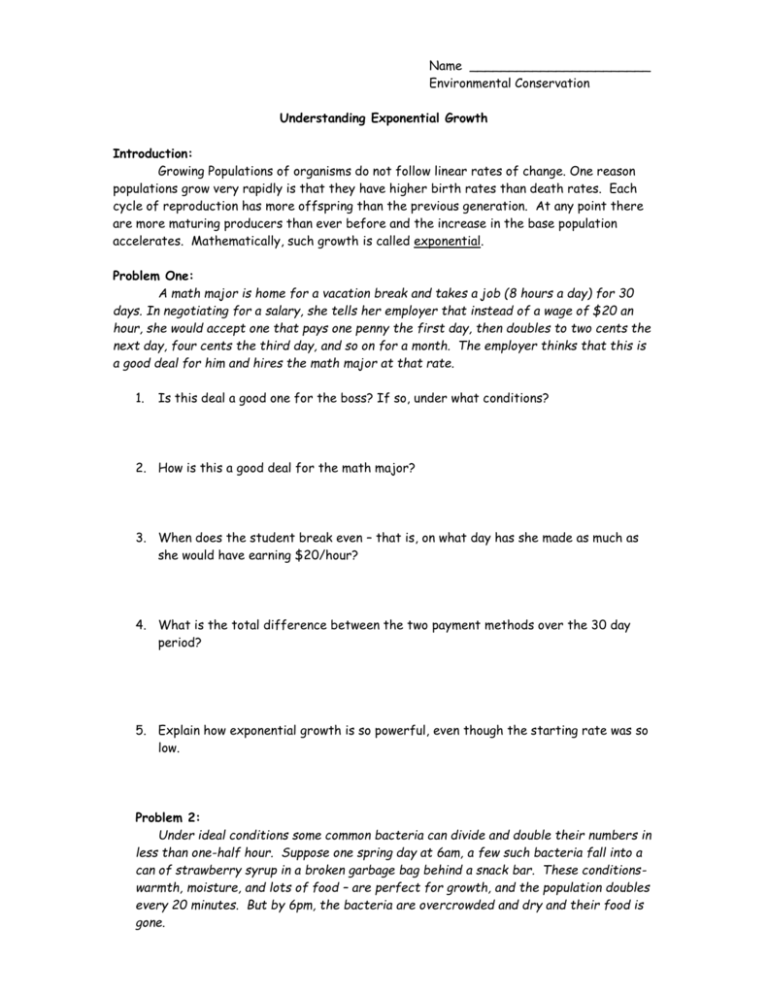
Name _______________________ Environmental Conservation Understanding Exponential Growth Introduction: Growing Populations of organisms do not follow linear rates of change. One reason populations grow very rapidly is that they have higher birth rates than death rates. Each cycle of reproduction has more offspring than the previous generation. At any point there are more maturing producers than ever before and the increase in the base population accelerates. Mathematically, such growth is called exponential. Problem One: A math major is home for a vacation break and takes a job (8 hours a day) for 30 days. In negotiating for a salary, she tells her employer that instead of a wage of $20 an hour, she would accept one that pays one penny the first day, then doubles to two cents the next day, four cents the third day, and so on for a month. The employer thinks that this is a good deal for him and hires the math major at that rate. 1. Is this deal a good one for the boss? If so, under what conditions? 2. How is this a good deal for the math major? 3. When does the student break even – that is, on what day has she made as much as she would have earning $20/hour? 4. What is the total difference between the two payment methods over the 30 day period? 5. Explain how exponential growth is so powerful, even though the starting rate was so low. Problem 2: Under ideal conditions some common bacteria can divide and double their numbers in less than one-half hour. Suppose one spring day at 6am, a few such bacteria fall into a can of strawberry syrup in a broken garbage bag behind a snack bar. These conditionswarmth, moisture, and lots of food – are perfect for growth, and the population doubles every 20 minutes. But by 6pm, the bacteria are overcrowded and dry and their food is gone. As you will discover in your calculations, this story about the bacteria dramatizes the uncertain state of our natural resources, even in times of perceptible abundance. 1. At what time did the syrup can become half full? 2. At one point during the day, some forward-thinking bacteria get the idea that they are facing a crisis. Their numbers are rising exponentially and they are using up their space and food at an ever-increasing rate. At what time do you think that idea would come? Explain your reasoning. 3. What would awareness of crisis not likely come before 5pm? How much food still remains at 5pm? 4. Three more syrup cans are placed into the garbage. When will these new cans be depleted by the growing bacteria population? Read the summary of the work of Thomas Malthus. Summarize what his thoughts were on population growth and sustainability of that growth. Thomas Robert Malthus, 1766-1834. Robert Malthus (he went by his middle name) was born in "the Rookery", a country estate in Dorking, Surrey (south of London). He was the second son of Daniel Malthus, a country gentleman and avid disciple of Jean-Jacques Rousseau and David Hume (both of whom he knew personally). Accordingly, Malthus was educated according to Rousseauvian precepts by his father and a series of tutors. Malthus entered Jesus College, Cambridge, in 1784 and was ordained a minister of the Church of England in 1788. He earned his M.A. in 1791. Around 1796, Malthus became a curate in the sleepy town of Albury, a few miles from his father's house. Having been elected Fellow of Jesus College in 1793, he divided his time between Cambridge and Albury. It was in the course of his interminable intellectual debates with his father over the "perfectibility of society" thesis then being advanced by William Godwin and the Marquis de Condorcet, that Malthus's decided to set his ideas down on paper. It was eventually published as a pamphlet known as the Essay on Population (1798). In this famous work, Malthus posited his hypothesis that (unchecked) population growth always exceeds the growth of means of subsistence. Actual (checked) population growth is kept in line with food supply growth by "positive checks" (starvation, disease and the like, elevating the death rate) and "preventive checks" (i.e. postponement of marriage, etc. that keep down the birthrate), both of which are characterized by "misery and vice". Malthus's hypothesis implied that actual population always has a tendency to push above the food supply. Because of this tendency, any attempt to ameliorate the condition of the lower classes by increasing their incomes or improving agricultural productivity would be fruitless, as the extra means of subsistence would be completely absorbed by an induced boost in population. As long as this tendency remains, Malthus argued, the "perfectibility" of society will always be out of reach. In his much-expanded and revised 1803 edition of the Essay, Malthus concentrated on bringing empirical evidence to bear (much of it acquired on his extensive travels to Germany, Russia and Scandinavia). He also introduced the possibility of "moral restraint" (voluntary abstinence which leads to neither misery nor vice) bringing the unchecked population growth rate down to a point where the tendency is gone. In practical policy terms, this meant inculcating the lower classes with middle-class virtues. He believed this could be done with the introduction of universal suffrage, state-run education for the poor and, more controversially, the elimination of the Poor Laws and the establishment of an unfettered nation-wide labor market. He also argued that once the poor had a taste for luxury, then they would demand a higher standard of living for themselves before starting a family. Thus, although seemingly contradictory, Malthus is suggesting the possibility of "demographic transition", i.e. that sufficiently high incomes may be enough by themselves to reduce fertility. The Essay transformed Malthus into an intellectual celebrity. He was reviled by many as a hardhearted monster, a prophet of doom, an enemy of the working class, etc. The ridicule and invective rained down on Malthus by the chattering and pamphleteering classes was relentless. But a sufficient number of people recognized his Essay for what it was: the first serious economic study of the welfare of the lower classes. Even Karl Marx, who deplored his conservative policy conclusions, grudgingly granted him this.
